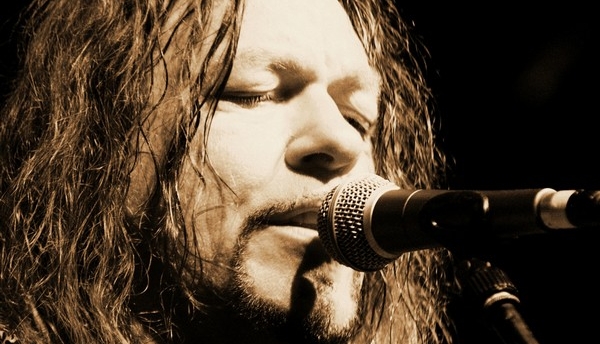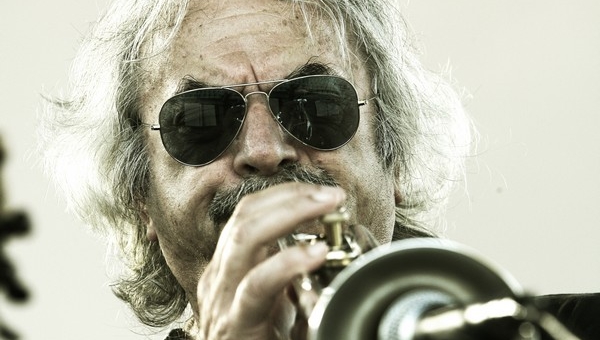He looks at the nomadic lifestyle he led with typical good-natured humour. “Yeah, I got no friends,” he laughs. “It’s funny, my father was always moving all the time, so I’d be in one school, and then I’d move to another one, and then another one. So haven’t got that thing where people have their old schoolmates that they’ve known for 20, 30, 40 years.
“I was born in the UK, so I had school friends there,” he recalls. “Then we moved to Perth, and I had school friends there. Then we went to Port Headland, and I had school friends there. Then we moved back to Perth, and then it was Melbourne and Sydney. But when you talk to people, all the bitchin’ they do about each other, I’m probably better off without it.”
He agrees that an itinerant childhood set him up for the lifestyle of a travelling musician he pursues with great gusto today.
“What’s really cool is that it’s the same lifestyle that the Aborigines have in Australia; they’re nomadic. I had some great Aboriginal friends in Sydney – they helped me learn to play the didgeridoo. I take it very seriously, and I also take the Aboriginal culture very seriously. I don’t want to muck with their spirituality or their belief system. So I’m very careful in the way I deal with that.”
Australian fans will be celebrating the fact that Harper is returning to Australia in October to play at the Wangaratta Jazz Festival. It’ll be his first trip back to our shores in several years and he can’t wait to return to the place he considers home.
“I haven’t done it [the festival] in, I think, seven years,” he says, “It’s been a long time, and this time I’m bringing the whole American band. So I’m really looking forward to people seeing what I run on the road. Because the problem always was before, I’d always used pick-up people.”
“So many American bands do,” he continues. “It’s cheaper for them. It’s never what America gets, and I don’t want to do that to my home, I want to do what I do over here. So I’m going to bring the yanks over.”
It’ll be the first visit to Australia for any of the members of his backing band. “They’ll be so scared of Australia,” he jokes. “They’ll be like, ‘what do we do now?’ and I’ll say ‘you ever had a meat pie?’ And they haven’t, they don’t even know what a meat pie is. They only know what a cherry pie is, or an apple pie, those things. God, you can’t even get Vegemite here.”
However, his hankering for meat pies and Vegemite is not enough for him to yearn to come home, as he explains his happiness with how his music career is going stateside.
“I love living here,” he says. “It’s been an incredible experience for me. We’ve done so well where so many other bands haven’t. I know so many players who have come here and they last maybe a year or two and they go back to Australia.”
“We’ve ended up spending our whole life here now, it’s become our life. Getting signed to Blind Pig Records, and carrying on from there, it’s just been a wonderful experience. And I’ve never changed my music, never tried to be anything I’m not, I’ve stuck to my guns. I’m just doing my own music.”
His career in the US has led to some incredible experiences in unexpected quarters. “I did some shows with Journey,” he reveals, speaking of the American ‘corporate rock’ institution, which had its peak in the late ’70s to early ’80s. “They’re huge here. They came and saw me – I was doing a gig in Iowa, and the whole Journey band showed up and sat right down the front to watch me.
“At the end of it, they came up to me, and we did a few little tequila things, and they said to me ‘we would like you to play with us.’ I thought I would be opening for them or something like that, but they actually wanted me to get onstage with them. I ended up going to one of their shows, and I think there were about 30,000 people there. If I’d never have moved to America, this would never have happened.”
BY ROD WHITFIELD







